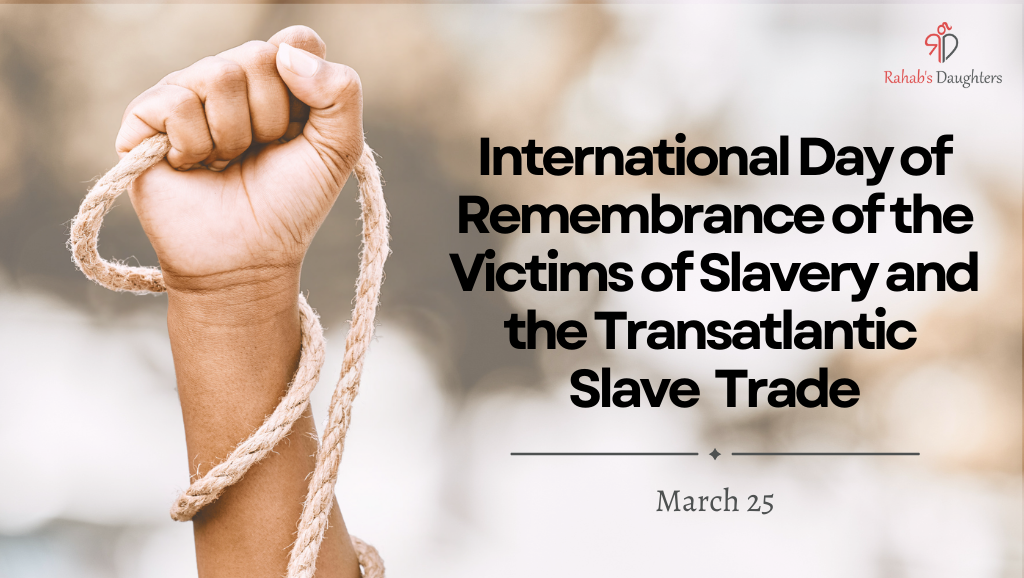
Today, on March 25th, the International Day of Remembrance of the Victims of Slavery and the Transatlantic Slave Trade, we pause to honor the lives of millions of African men, women, and children who were torn from their homelands, stripped of their freedoms, and subjected to one of history’s most inhumane atrocities.
The transatlantic slave trade lasted for over 400 years, trafficking more than 15 million people across continents through violence, coercion, and systematic dehumanization. The effects of this legacy are not just historical—they are alive in the inequalities and injustices we still see around the world today.
At Rahab’s Daughters, we are deeply aware that slavery did not end with abolition. It evolved. Today, it takes the form of human trafficking, a modern-day slavery that affects an estimated 50 million people globally—many from the same marginalized communities historically targeted by the slave trade.
Why This Day Matters
This day is not only a memorial; it is a mirror. It reflects how far we’ve come—and how far we have yet to go in confronting racism, exploitation, and systemic oppression.
The transatlantic slave trade reminds us of:
• The value of remembrance—so we never forget the pain inflicted by injustice.
• The urgency of action—because the chains of modern slavery are still binding people today.
• The power of resilience—seen in the strength of the African diaspora and all survivors of slavery and trafficking.
From Then to Now: The Fight Continues
Just as abolitionists once raised their voices to end the slave trade, we too must speak up for the voiceless. Survivors of trafficking today face many of the same conditions: forced labor, sexual exploitation, broken families, and a lack of justice.
Our mission at Rahab’s Daughters is not only to rescue and rehabilitate those affected by trafficking, but also to educate, prevent, and advocate for a world where no one is bought, sold, or silenced.
We cannot disconnect the past from the present. The roots of today’s human trafficking systems are entwined with historical injustices. That’s why we must continue to:
• Empower survivors.
• Dismantle the systems that enable exploitation.
• Educate communities about the real and present danger of trafficking.
• Advocate for equity, justice, and freedom for all.
A Call to Reflection—and to Action
On this solemn day, we ask you to do more than remember.
• Learn about the transatlantic slave trade and its continuing impact.
• Reflect on the structures that still enable human exploitation.
• Act by supporting organizations fighting human trafficking and standing with survivors.
Let us honor the victims of the past by protecting the vulnerable today.
Let remembrance move us toward justice.
Let memory fuel our mission.
Together, we rise—until all are free.
